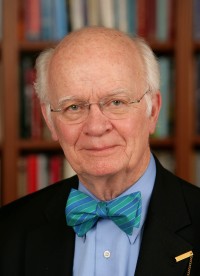Search engine
I think of this column as a kind of search engine. Mention a puzzling item here and you’re sure to get a response. Recently I mentioned a book titled He Sent Leanness, a skinny volume I used to own. It has gone missing from the devotional-spirituality section of my library. Since it was not something I would have jettisoned during my several-year book giveaway, as I condensed five office-study’s worth of volumes into two, I must have loaned it out—which is equivalent to having given it away.
In the following week’s mail I heard from a score of fellow devotees of the book. Some were seminary classmates, unheard from for decades. Some were wondering if my capacity for remembering was dwindling. Others had excerpted a prayer or two from the book or described what they liked best in it. All were too smart to offer to lend me their copy.
They reminded me of the book’s subtitle: A Book of Prayers for the Natural Man. While I had thought the book was by an Anglican, most of my correspondents surmised it was by a Methodist. This confusion is a sign of how low Anglicanism and how high Methodism have become. Donald Fox called the book “almost Kierkegaardian.” Nicholas May copied out the “Prayer of the Author”: “Grant, I beseech Thee, that all who read this book may be conscious of the deep spiritual insight of the writer; that the sale of this book may result in a nice little nest egg, even after income-tax has been deducted; that copies of this book, nicely bound, may make an impressive sight in the study, on the bookshelf which is level with the eye, that amid all the congratulatory applause, the writer may remain conspicuously humble.”
Now you know why I liked the book.
This column has yielded other research results. Through years of effort we discovered that no one has ever found in published Martin Niemöller writings his words ending with “they came for me . . .” from the Nazi era. We do, however, think we’ve tracked down the German source of the Alcoholics Anonymous serenity prayer that Reinhold Niebuhr used in a Sunday sermon.
Among the mysteries that remain is the identity of the person who sent me a copy of A Cry of Absence, a book I published in 1983. Someone named Br—— Sl—— sent it to me with a note asking me to autograph and return it. The colleague who had unwrapped the book had thrown away the wrapping and, hence, the return address. We think it came from Americus, Georgia—Koinonia Farm territory. I bet someone has gone around for years thinking how thoughtless we are at the Christian Century. That book is still on my shelf, near where He Sent Leanness used to be, eye level in the devotion-spirituality section. Conspicuous humility in action.
Here’s a new search assignment. I’m trying to find a line attributed by Edmund Morgan to historian R. H. Tawney, a line I use to explain why I study history: “The world seemed an odd place, and I wondered how it got that way.” Quote-sleuth Anthony Shipps of Indiana found something close, but I still keep looking. When not conspicuously humble, I remain conspicuously curious.





